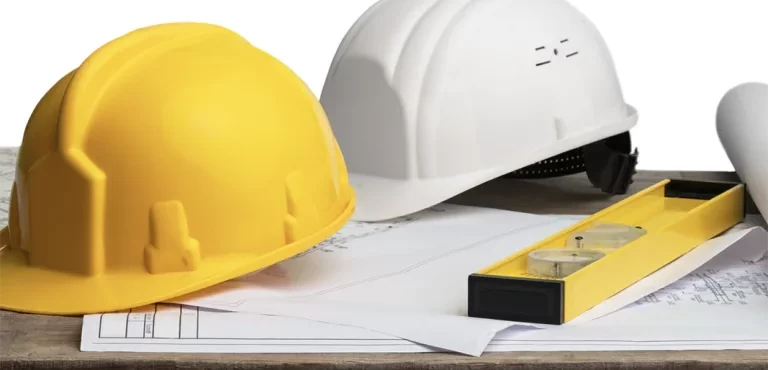
When it comes to general contracting in North Carolina, understanding the legal landscape is essential, especially if you’re accused of unlicensed work. The process can be overwhelming, but being informed is the first step in safeguarding your professional future. In this blog, we’ll explore the steps to take if you find yourself facing a complaint about unlicensed general contracting, the types of complaints that can arise, and how to respond effectively.
The Jurisdiction of the General Contracting Board
In North Carolina, the North Carolina Licensing Board for General Contractors has jurisdiction over licensed general contractors. This means that if you hold a license, the board can manage complaints against you without involving the court system. However, if you are unlicensed, the situation changes dramatically. The board lacks authority over unlicensed individuals, which means any complaint must be taken to real court.
This notice outlines the initial stages of the complaint process, detailing that you will soon receive either a copy of the complaint or a summary of charges. Typically, this summary will include an affidavit signed by the Director of Complaints and Investigations, currently Ms. Susan Sullivan, who has been in this role since 1994. The affidavit is notarized, ensuring its authenticity.
The Initial Notification
If you are accused of performing unlicensed general contracting work, the first thing you’ll receive is a notice from the North Carolina Licensing Board for General Contractors. This notice will inform you that a complaint has been filed against you and will provide an opportunity for you to submit a statement and supporting documents. It’s essential to respond promptly and accurately, as this will set the tone for the rest of the process.
Understanding the Complaint Process
Once you’ve received the complaint notice, you have a chance to prove your case. If you believe that your work did not exceed the $40,000 threshold for requiring a license, you can submit documentation to support your claim. However, if your total project costs reach or exceed this amount, you might face serious repercussions.
Common Sources of Complaints
Three primary sources typically file complaints against unlicensed contractors:
- Planning or Permitting Departments: Officials from local government departments may file complaints if they observe unlicensed work.
- Homeowners: Property owners often file complaints if they feel they’ve been wronged by an unlicensed contractor.
- Competitors: Sometimes, competitors in the field may file complaints out of concern for fair business practices.
The Next Steps After Receiving a Complaint
After submitting your response, the review committee of the board will assess the information provided. They will determine if there’s enough probable cause to escalate the matter to Superior Court. You may not receive an apology if they find in your favor, but they could dismiss the case. Alternatively, they might decide to pursue an injunction against you, particularly if they believe you have engaged in unlicensed work valued at $40,000 or more.
Filing a Complaint in Superior Court
If the board chooses to escalate the complaint, they will file a complaint for an injunction in Superior Court. This process typically occurs in Wake County. Once the complaint is filed, you’ll be formally served with a copy, usually through certified mail or by a sheriff, ensuring you are aware of the allegations against you.
Responding to the Court Summons
Upon receiving the summons, you have thirty (30) days to respond. Your options include:
- Filing an Answer: You can admit, deny, or state that you lack sufficient information to respond to the allegations.
- Motion to Dismiss: Alternatively, you can file a motion to dismiss the complaint outright.
It’s essential to act within the 30-day timeframe. If needed, you may file a motion requesting an additional 30 days, but this requires a formal request to the court.
What Happens Next?
If you acknowledge the complaint, you have the option to negotiate a consent order. This is a legal agreement where you admit to having done unlicensed work but agree not to do so in the future. A consent order will include findings of fact and an injunction, which means you are legally barred from performing unlicensed work valued at $40,000 or more.
The Importance of Consent Orders
While it may seem trivial, having a consent order in place is vital. Violating this order can lead to serious consequences, including contempt of court, which could result in fines or jail time. Thus, it’s vital to understand the implications of signing a consent order and to comply with its terms strictly.
What If You Don’t Agree to a Consent Order?
If you believe you have not done anything wrong, you can opt to contest the case. This may involve a hearing, where you can present your evidence and argue your side. If the board fails to prove its case, the complaint can be dismissed. However, if you lose, you may still need to deal with a consent order.
Final Thoughts
Dealing with complaints against unlicensed general contractors can be complex and stressful. The best course of action is to stay informed, respond promptly, and seek legal advice if necessary. Remember, if you find yourself in a situation where you are accused of unlicensed work, understanding your rights and the legal process can make all the difference.
*Nothing in this blog establishes an attorney-client relationship. Nothing in this blog is legal advice. If you have any questions, please check out our other blogs and our Youtube channel. You can also call us at 919-521-8810 with questions.

